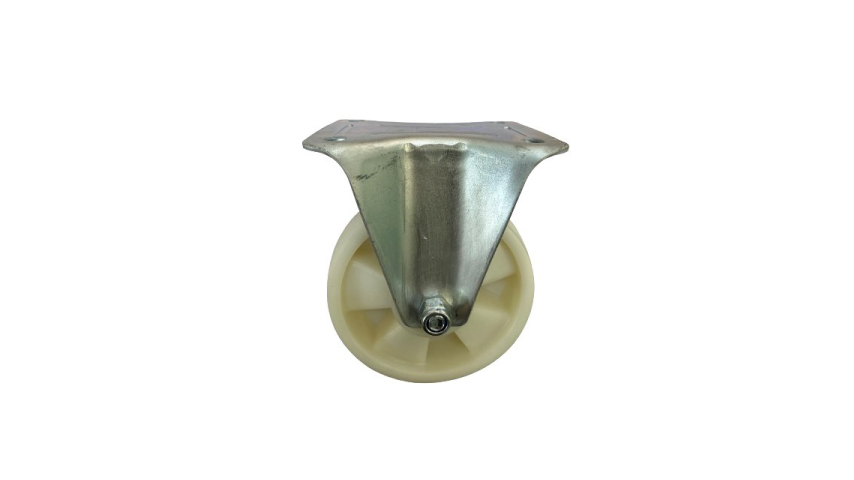
The Role of Technology in Enhancing Caster Wheel Manufacturing Processes
Caster wheel manufacturing has undergone significant transformation over the years, thanks to advancements in technology. Today, technological innovations are revolutionizing the production process, enhancing the durability, functionality, and customization of caster wheels for various industries. From automation and robotics to advanced materials and precision engineering, technology is helping caster wheel manufacturers in India meet the growing demands of modern industries.
In this blog, we will explore how technology plays a pivotal role in improving caster wheel manufacturing processes and what it means for both manufacturers and end-users, including how nylon roller wheels suppliers are leveraging these advancements.
- Automation in Manufacturing Processes
Automation has become an integral part of caster wheel production. Automated machinery is employed to streamline processes like cutting, shaping, assembling, and quality control, allowing manufacturers to produce wheels more efficiently. The use of Computer Numerical Control (CNC) machines enables precision in cutting and forming, which ensures consistent quality across batches.
For caster wheel manufacturers in India, automation reduces labor costs, increases production speed, and enhances overall operational efficiency. It also helps in scaling up production to meet large orders without compromising on quality, a critical factor in today’s competitive market. The adoption of automated systems means reduced human error, ensuring uniformity in every product and minimizing wastage.
- Advanced Materials and Enhanced Durability
The development of new materials has significantly enhanced the strength and durability of caster wheels. Manufacturers are now experimenting with materials like high-grade steel, aluminum alloys, and industrial-grade polymers to produce caster wheels that are not only stronger but also lighter. These materials offer increased load-bearing capacity while resisting wear and tear, making them ideal for heavy-duty industrial applications.
Nylon roller wheels suppliers are particularly benefiting from the integration of advanced materials. Nylon, for instance, offers excellent resistance to chemicals, oils, and greases, making it a preferred material in environments where wheels are exposed to harsh substances. The use of nylon in roller wheels also reduces friction and provides smooth movement, making it a popular choice for various sectors like warehousing, logistics, and manufacturing.
- 3D Printing and Prototyping
3D printing is reshaping how manufacturers design and prototype caster wheels. In traditional manufacturing, prototyping involved a lengthy process of creating molds and testing designs. With 3D printing, manufacturers can now quickly create prototypes of caster wheels, test them for functionality, and make design modifications without the need for expensive tooling.
This technology has drastically reduced lead times in product development, allowing caster wheel manufacturers in India to bring new designs to market faster. It also provides flexibility in customizing caster wheels to specific client requirements, ensuring that they meet the unique needs of various industries, from healthcare to automotive.
3D printing also enables manufacturers to test different materials and designs in real-time, further improving product durability and performance before mass production begins.
- Robotics and Precision Engineering
Incorporating robotics in manufacturing has revolutionized the way caster wheels are produced. Robots equipped with precision engineering capabilities ensure that each wheel is produced with exact specifications, which is particularly important in applications requiring uniformity and accuracy, such as medical equipment or aerospace machinery.
Robotic systems can handle intricate tasks like assembling wheels with brakes, swivels, or locks, which can be challenging for manual labor to achieve consistently. For nylon roller wheels suppliers, precision engineering through robotics ensures that the wheels offer smooth, consistent performance with minimal variation between units, enhancing their reliability.
Additionally, robots are used to perform strenuous and repetitive tasks, allowing human workers to focus on more critical areas like quality control and research and development (R&D).
- Data-Driven Manufacturing with IoT
The Internet of Things (IoT) is making factories smarter by integrating sensors and data-collecting devices throughout the production process. Caster wheel manufacturers in India are using IoT to monitor equipment, track inventory, and manage workflow in real-time.
IoT sensors embedded in manufacturing equipment provide insights into machine performance, detecting issues like overheating or wear and tear before they result in costly breakdowns. Predictive maintenance through IoT helps manufacturers maintain a smooth production process, avoiding downtime and maximizing productivity.
For nylon roller wheels suppliers, IoT allows for more efficient inventory management. Real-time data on stock levels can alert suppliers when it’s time to reorder raw materials, preventing delays and ensuring a steady supply to meet customer demands.
- Sustainability through Energy-Efficient Processes
Technological advancements are also driving sustainability in caster wheel manufacturing. Energy-efficient machinery, recycling programs, and eco-friendly materials are all becoming more prevalent in the industry. Manufacturers are now investing in greener technologies that reduce energy consumption, lower carbon footprints, and minimize waste.
For example, nylon roller wheels suppliers are increasingly adopting sustainable manufacturing practices by recycling materials during the production process. Nylon can often be recycled, reducing the need for virgin materials and minimizing the environmental impact.
Energy-efficient machines and automated processes also contribute to reducing the carbon footprint of factories, making caster wheel production more sustainable and aligned with global environmental goals.
- Customization and Digital Design
Customization is a key area where technology is playing a critical role. Manufacturers are now using digital design tools to create customized caster wheels that meet specific customer needs. These tools allow engineers to create virtual models of caster wheels, simulate their performance under various conditions, and make adjustments before physical production begins.
Customers from various industries—such as healthcare, manufacturing, or hospitality—often have unique requirements, and digital design tools offer them a way to visualize and tweak their products before committing to a final order. This flexibility is particularly beneficial to caster wheel manufacturers in India, where diverse industries require specialized solutions for their equipment.
Conclusion
The integration of technology into caster wheel manufacturing processes has brought about significant improvements in efficiency, precision, and sustainability. For caster wheel manufacturers in India and nylon roller wheels suppliers, adopting automation, robotics, advanced materials, and IoT-driven solutions has helped them meet evolving industry demands. These technological innovations ensure that caster wheels are durable, customizable, and environmentally friendly, paving the way for future growth in the industry.
As technology continues to advance, we can expect further enhancements in the way caster wheels are designed, manufactured, and utilized across industries, making them more versatile and reliable than ever before.


